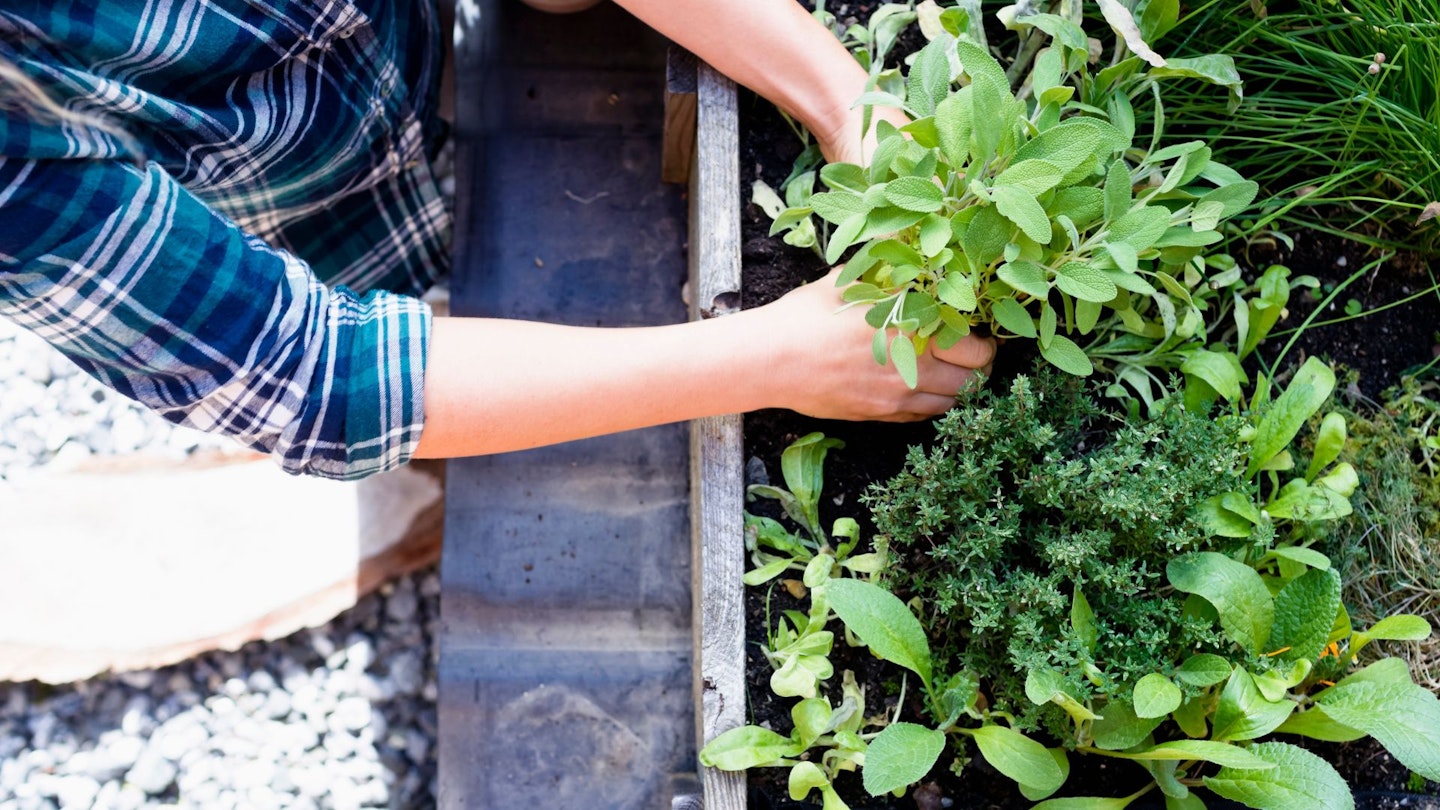Cultivating your own herb garden can be the best feeling. Not only are you nurturing seeds and starters to fully-fledged, flowering plants – but, you’re getting some useful culinary ingredients, too. One way to boost your meals is to use fresh herbs, straight from your garden or windowsill. Herb gardens make a great alternative for those of us who don’t have enough space to grow our own veg. At Yours, we’re encouraging you to don some gardening gloves with our no-nonsense, essential guide on how to make the best herb garden – with some sage advice.
Are herbs best grown inside or outside?
In the UK, a herb garden can be grown outside and inside. All of this depends on your lifestyle, space, climate and resources. Inside or outside, your herbs will need good sun, moderate temperatures and potting mix that drains well. That's the baseline. Some herbs can be the exception, though. We're looking at you, mint.
We've listed the pros and cons of each with help from Do Not Disturb Gardening:
Growing herbs indoors
With growing herbs indoors, you're more likely to have access to fresh herbs year-round. They're going to be pesticide-free and healthy - and low maintenance! Not only are you going to save money and time on buying herbs at the supermarket, but you don't have to leave the cosy indoors. They're nearby and can have lovely scents.
However, if you're leaning towards an indoor herb garden, you need to consider a few cons. You will need to regulate the indoor temperature. Place your herbs in a room where the temperature is going to stay moderate. As mentioned before, supplemental lighting may need to be considered if your space isn't sunny enough. With indoor herbs, pests are a little more common. Plus, watering can be trickier because herbs need sufficient drainage.
Growing herbs outdoors
On the other hand, if you're considering an outdoor herb garden, there are plenty of advantages. There's no need to buy supplemental lighting. You may already have raised flower beds, so you may not need to buy containers. Not only do you have access to herbs year-round, but they will be pesticide-free, healthy and relatively low maintenance. Herbs can benefit other plants and veggies in the garden and you may find them easier to water.
But, there are disadvantages to growing herbs in your garden - or outdoors. Unfortunately, your soil situation may take a bit of work to prepare and maintain. Plus, disease and pest control can be a bother, too. But, if you're clued up about these areas, then you're good to go. You'll also find that your outdoor herb garden will need protection during winter. Finally, when you need to tend to your herbs, you may have to brave the cold as you will be outdoors.
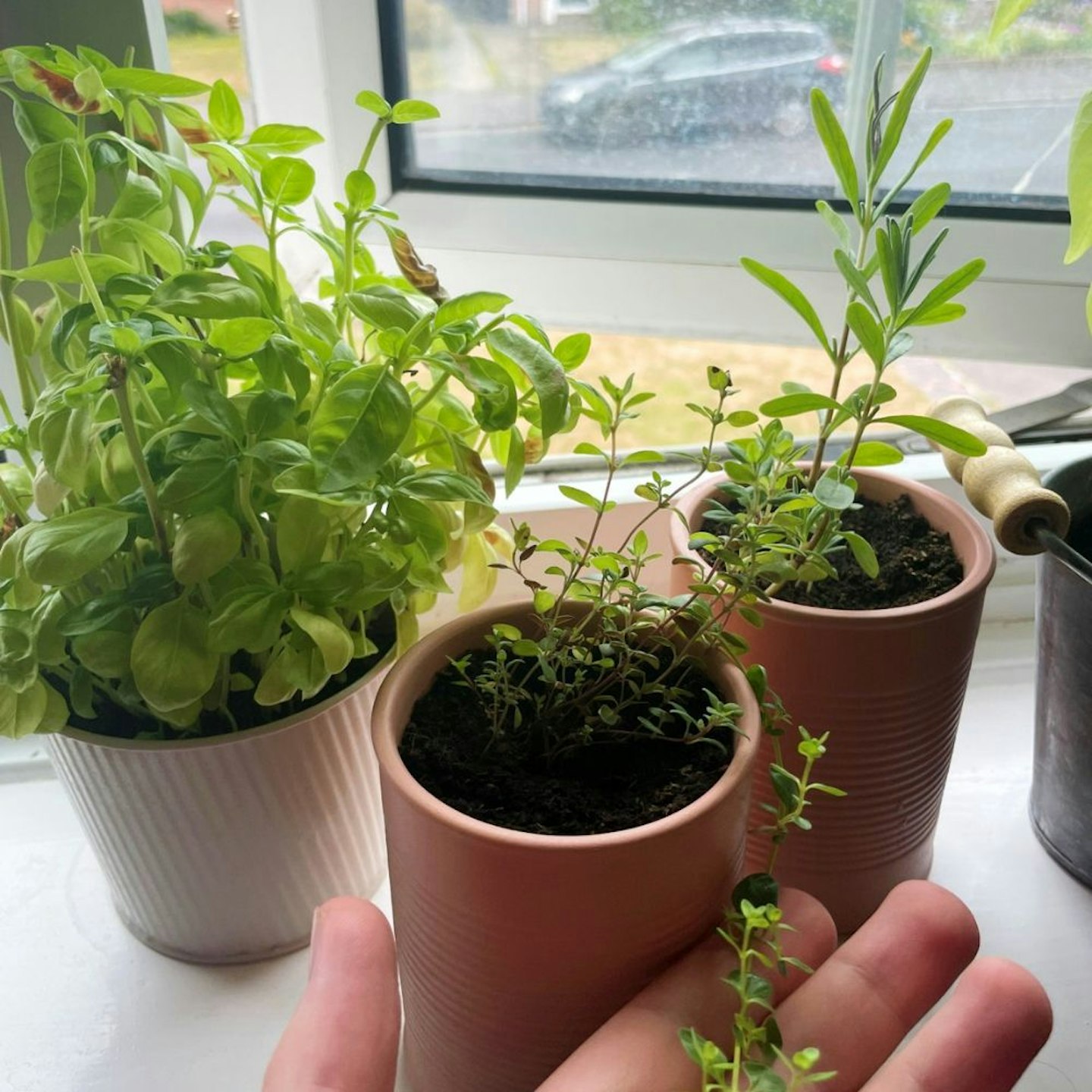
What are the best herbs to grow?
There are plenty of herbs to collect in your herb garden. They have fragrant leaves, and some grow very easily. They’re a perfect starting place for those of us who want to get a little more green-fingered. Growing herbs is a self-sufficient way to support your wellbeing and your mealtimes.
According to the RHS, it’s recommended to sow tender herb seeds (such as basil, marjoram, coriander, and tarragon) indoors in spring. Once established, some herbs can live outside all year. We’ve listed the best herb garden ideas, whether indoors on the windowsill, or outdoors. Here are some of the best herb seeds for your perusal...
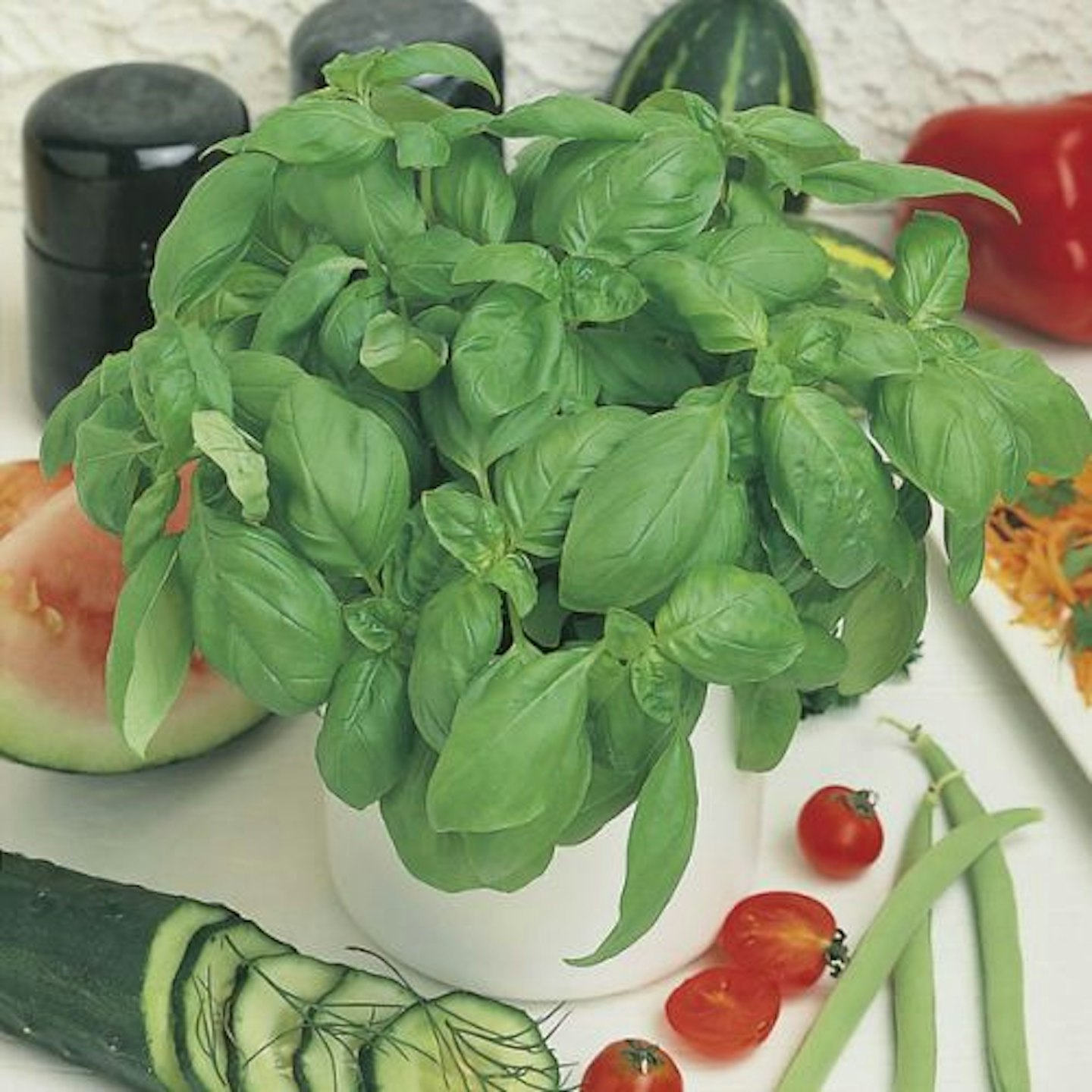 1 of 10
1 of 10Wilko Basil Seeds
Basil is a fragrant, nutritious herb that is suitable for indoor planting year-round.
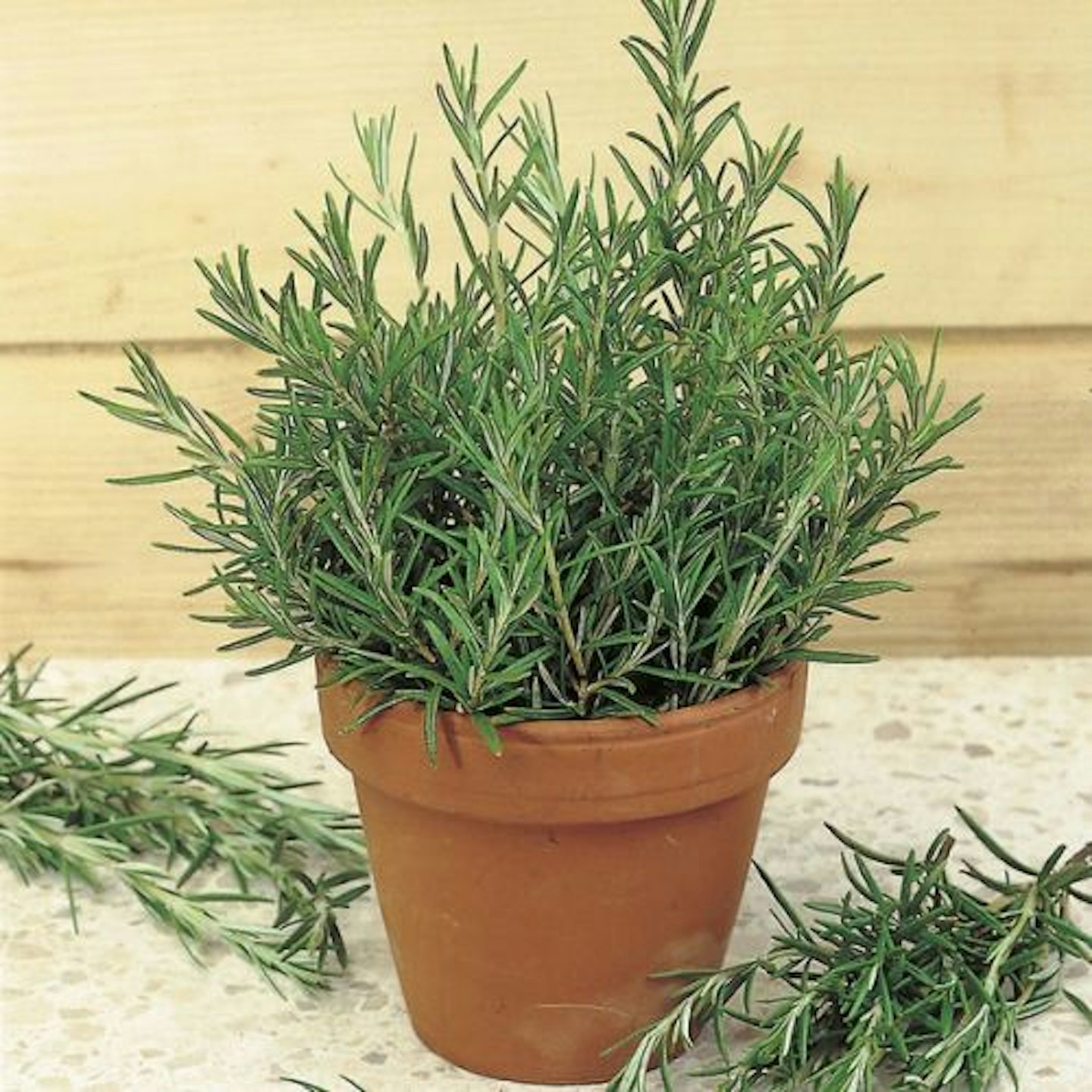 2 of 10
2 of 10Johnsons Rosemary Herb Seeds
Rosemary is a woody perennial that is suitable for indoor sowing from February to May.
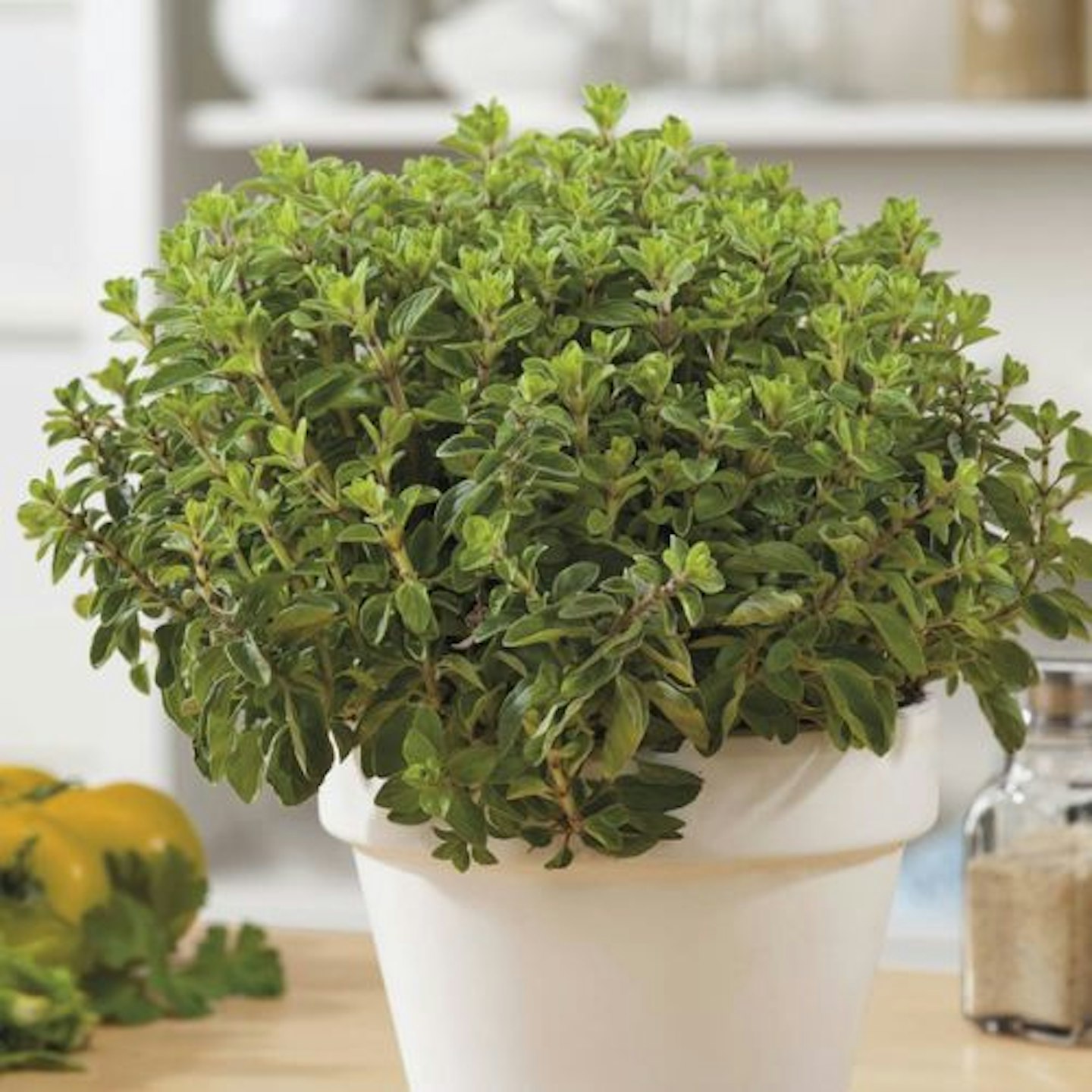 3 of 10
3 of 10Johnsons Greek Oregano Herb Seeds
Oregano is related to mint, believe it or not. Robust and hardy, this perennial is easy to grow and can be grown indoors year-round. For outdoor sowing, stick between March and May.
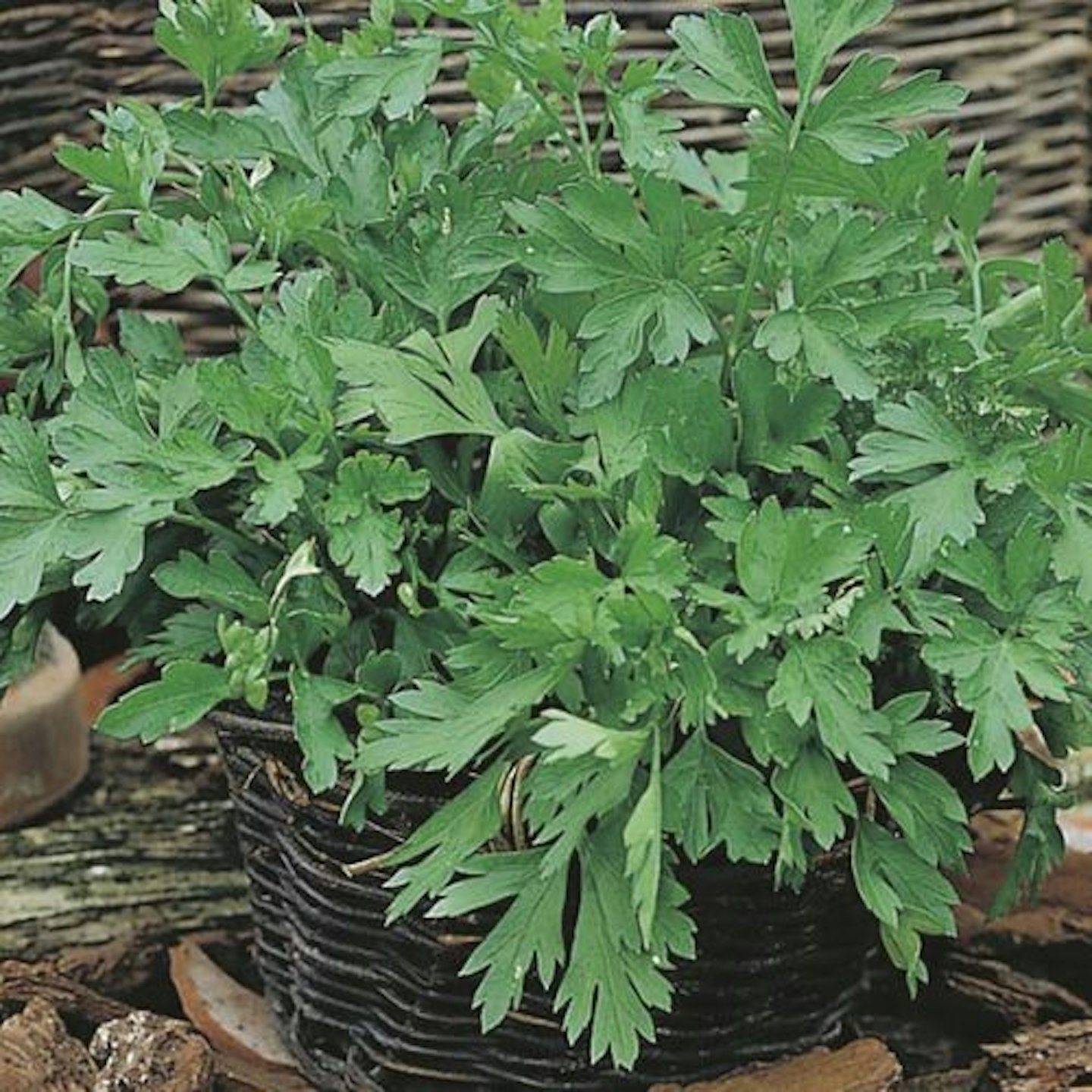 4 of 10
4 of 10Wilko Parsley Plain Leaved Seeds
Parsley is one of the most common and easiest herbs to grow. A tender biennial, this herb can be grown from seeds, indoors year-round. For outdoors, sow between March and June.
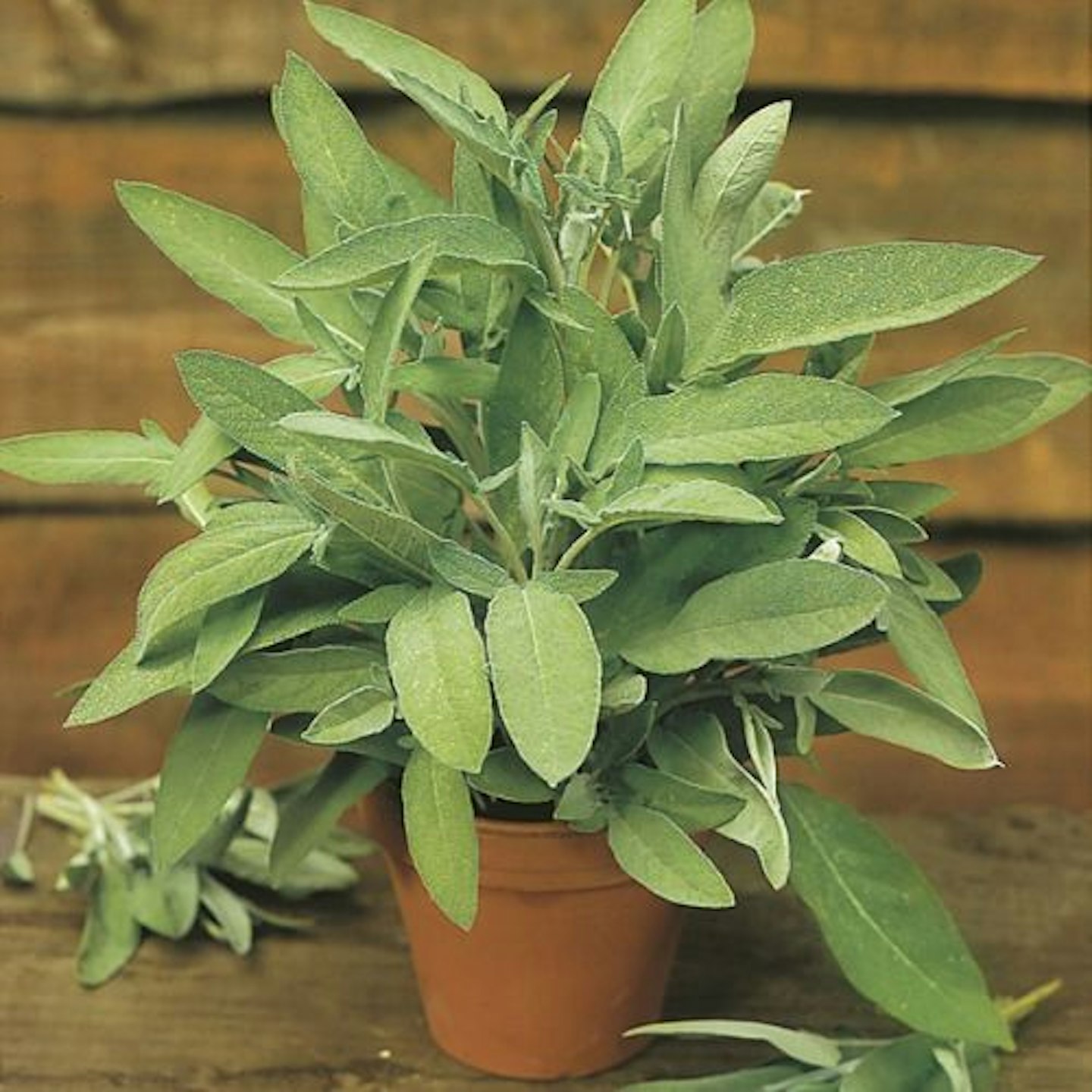 5 of 10
5 of 10Johnsons Sage Herb Seeds
Sage is a piney and hardy subshrub. It thrives on neglect and is best grown outdoors, sowing from April until May. However, it can be cultivated indoors on a sunny windowsill, from February to March.
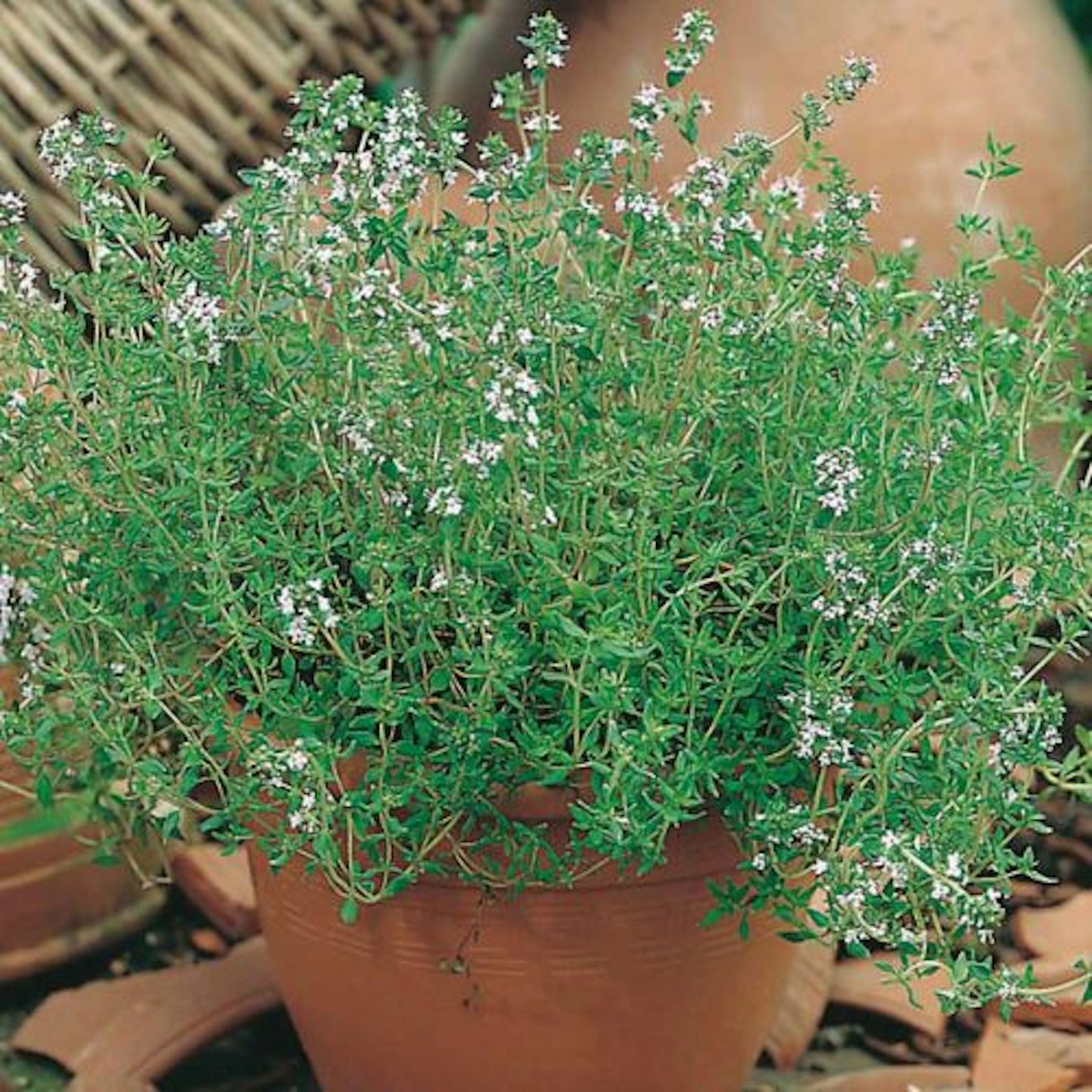 6 of 10
6 of 10Wilko Thyme Seeds
Thyme is a common ingredient in our savoury dishes in Europe. This carefree perennial can be grown indoors from February to May. Outdoors, we’d recommend sowing in May or June.
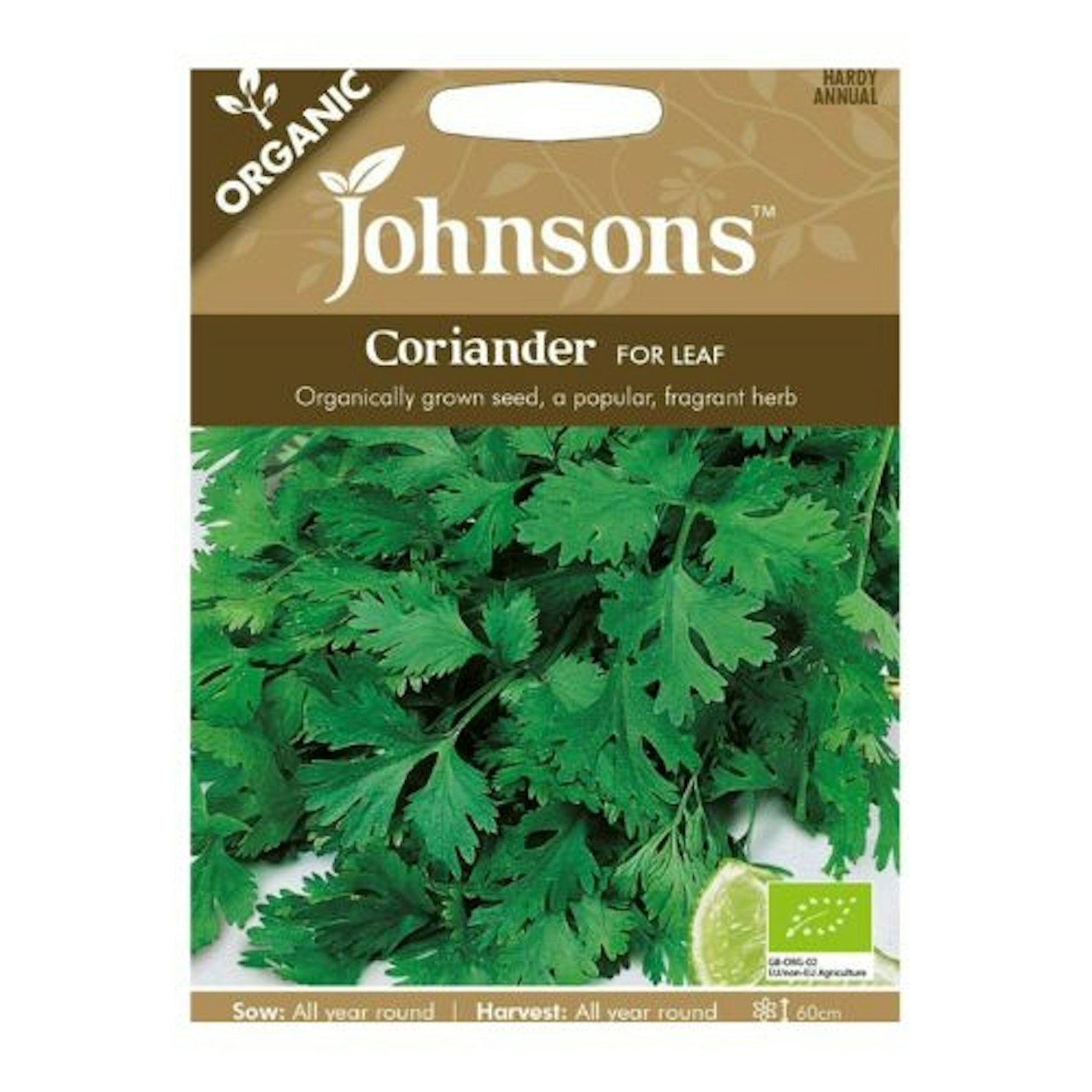 7 of 10
7 of 10Johnsons Coriander for Leaf Organic Seeds
Coriander is a pungent herb, but it’s not for everyone. If you’re a fan of using it in your cooking, you can plant this fast-growing herb year-round indoors. For outdoors, sow from March to June.
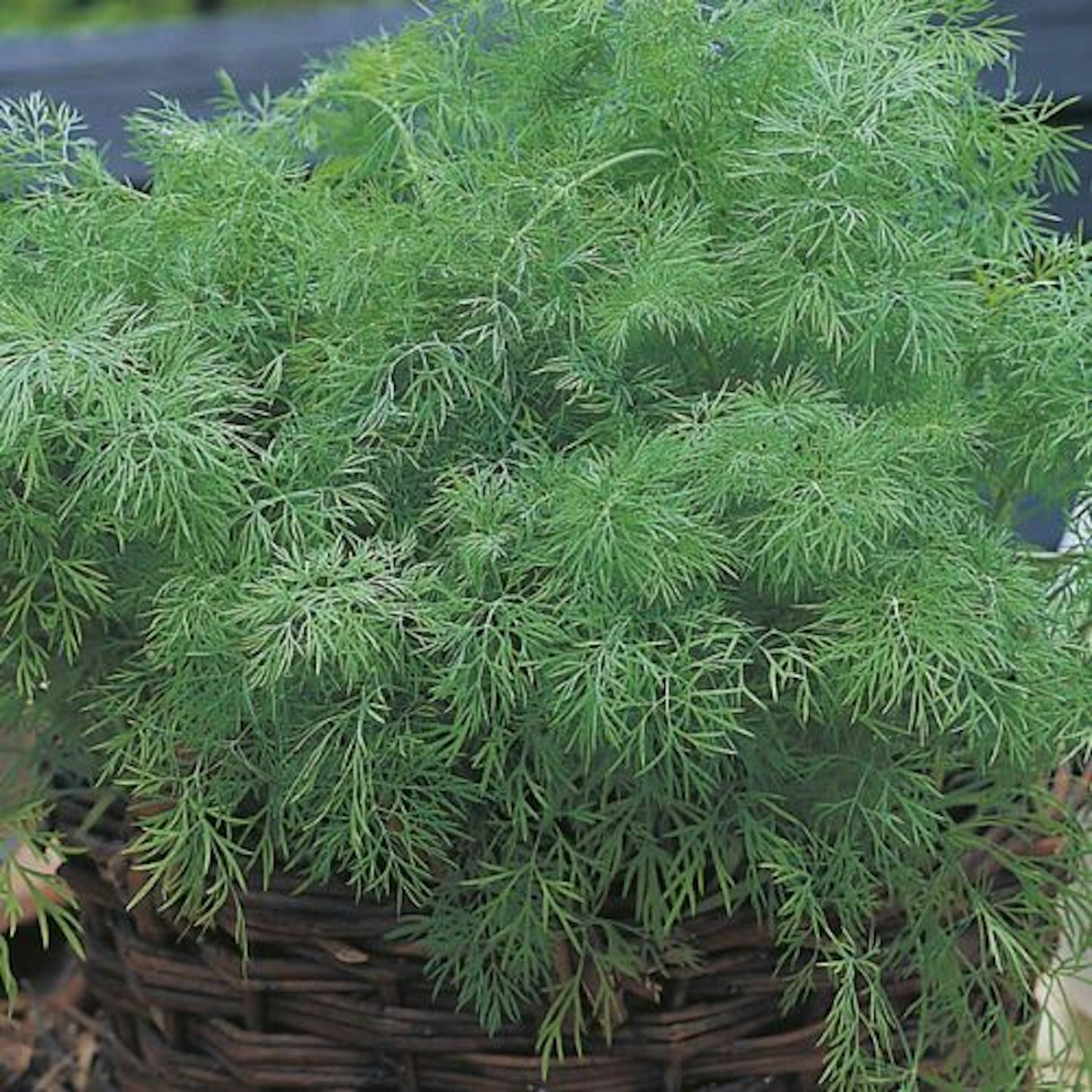 8 of 10
8 of 10Wilko Dill Seeds
Dill is a hardy annual and easy to grow. It pairs perfectly with fish dishes, pickles and stews. It can be grown all year round indoors. For outdoor growing, sow between March and June.
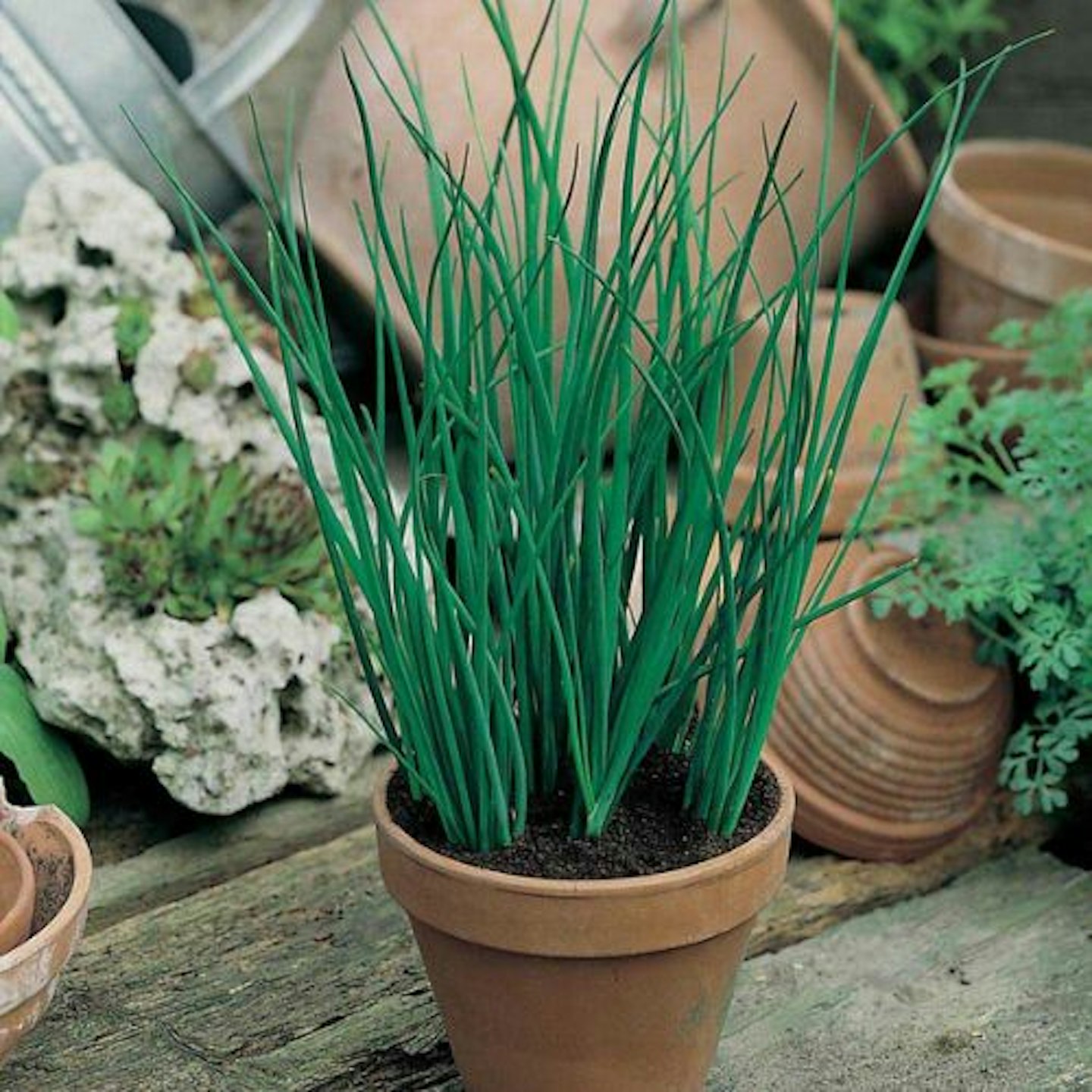 9 of 10
9 of 10Wilko Chive Seeds
Chives are a member of the garlic family and come with a mild flavour. Plus, the flowers are edible. For this grass-like foliage, sow year-round indoors and during the Spring outdoors.
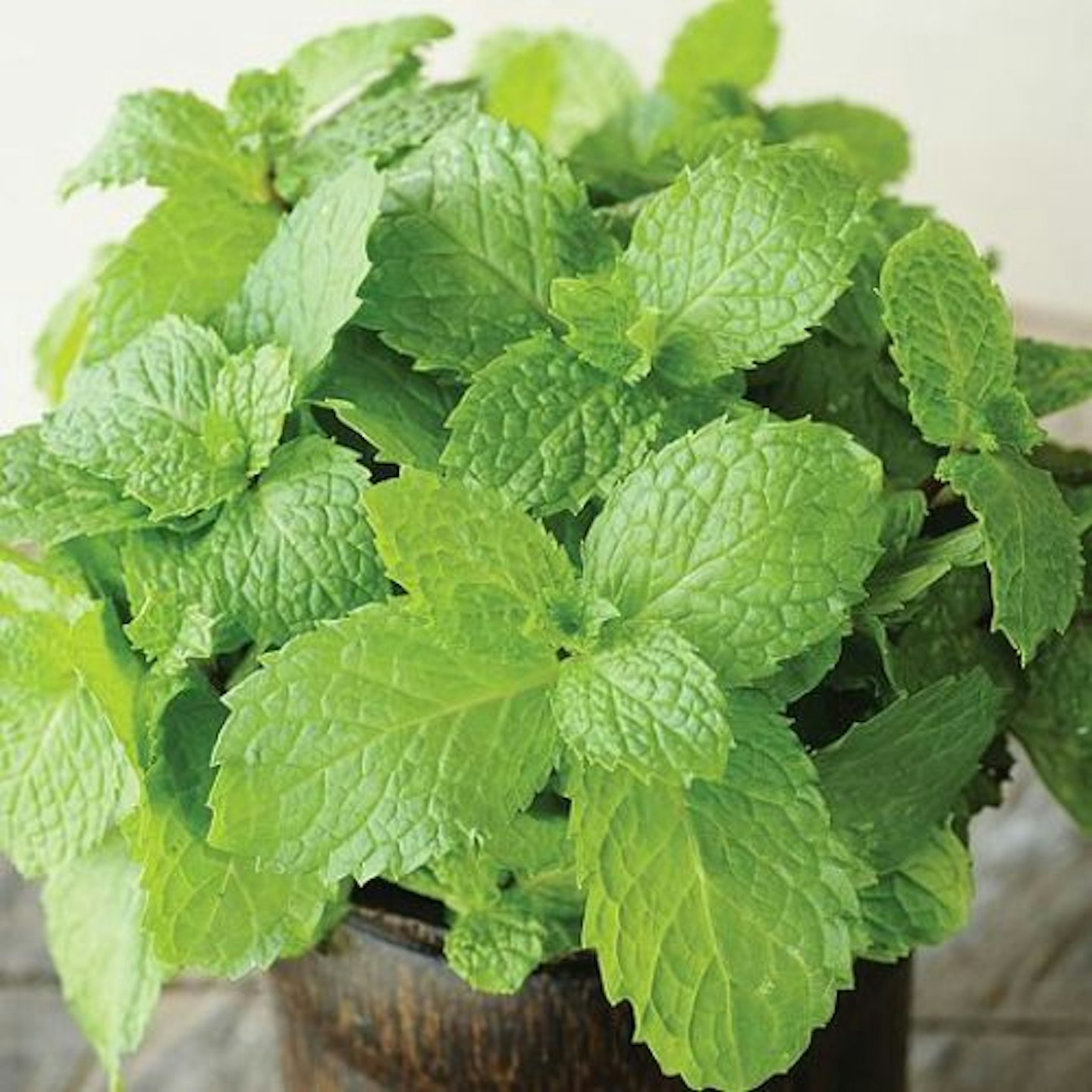 10 of 10
10 of 10Mint Seeds
Mint is a great addition to your herb garden, versatile and full of benefits. Why not pop it on your patio in a container? It needs a lot of space. It’s hardy and likes plenty of sun - as well as moist, fertile soil.
Are herbs best grown in pots?
Most herbs are fine to grow in containers, whether sown from seed or bought from a garden centre. The RHS recommends avoiding cultivating supermarket herbs as they often cannot adapt well to life outdoors. We’ve summed up a step-by-step guide on how to plant herbs in a pot or container.
Step 1
Choose a container that will give herbs a deep root run. We recommend 'long tom pots' as they will give the right depth, and drainage. Plus, pots look great in a group or in a raised bed outdoors. We recommend this set from Amazon:
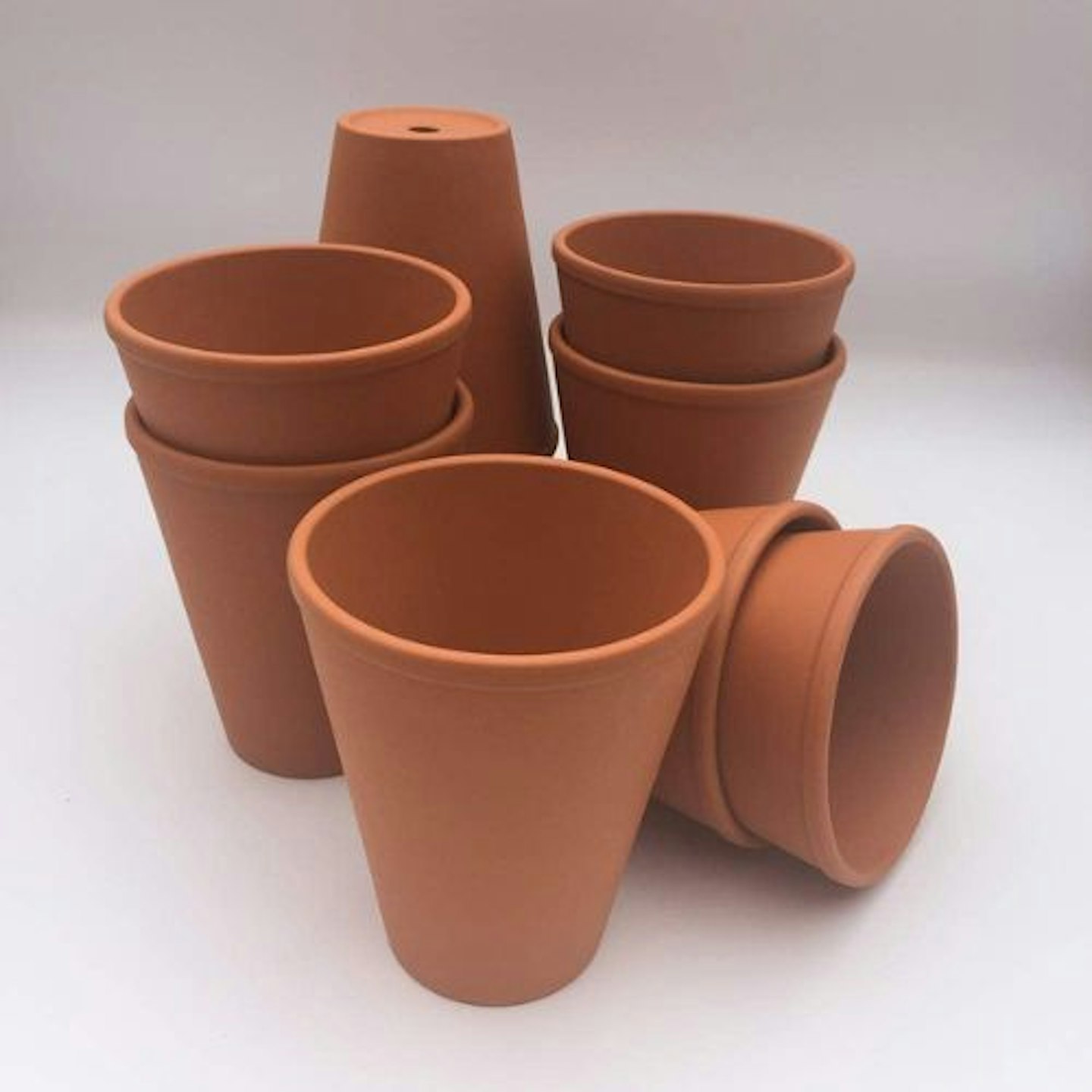 1 of 1
1 of 1Terracotta Long Tom Plant Pots (Set of 10)
Step 2
Now, upkeep. We recommend keeping the compost moist but avoiding making it soggy. If your herbs are struggling a little, you may use balanced fertiliser to encourage growth. We recommend Miracle-Gros’s formula, which is one of the best fertilisers for a herb garden.
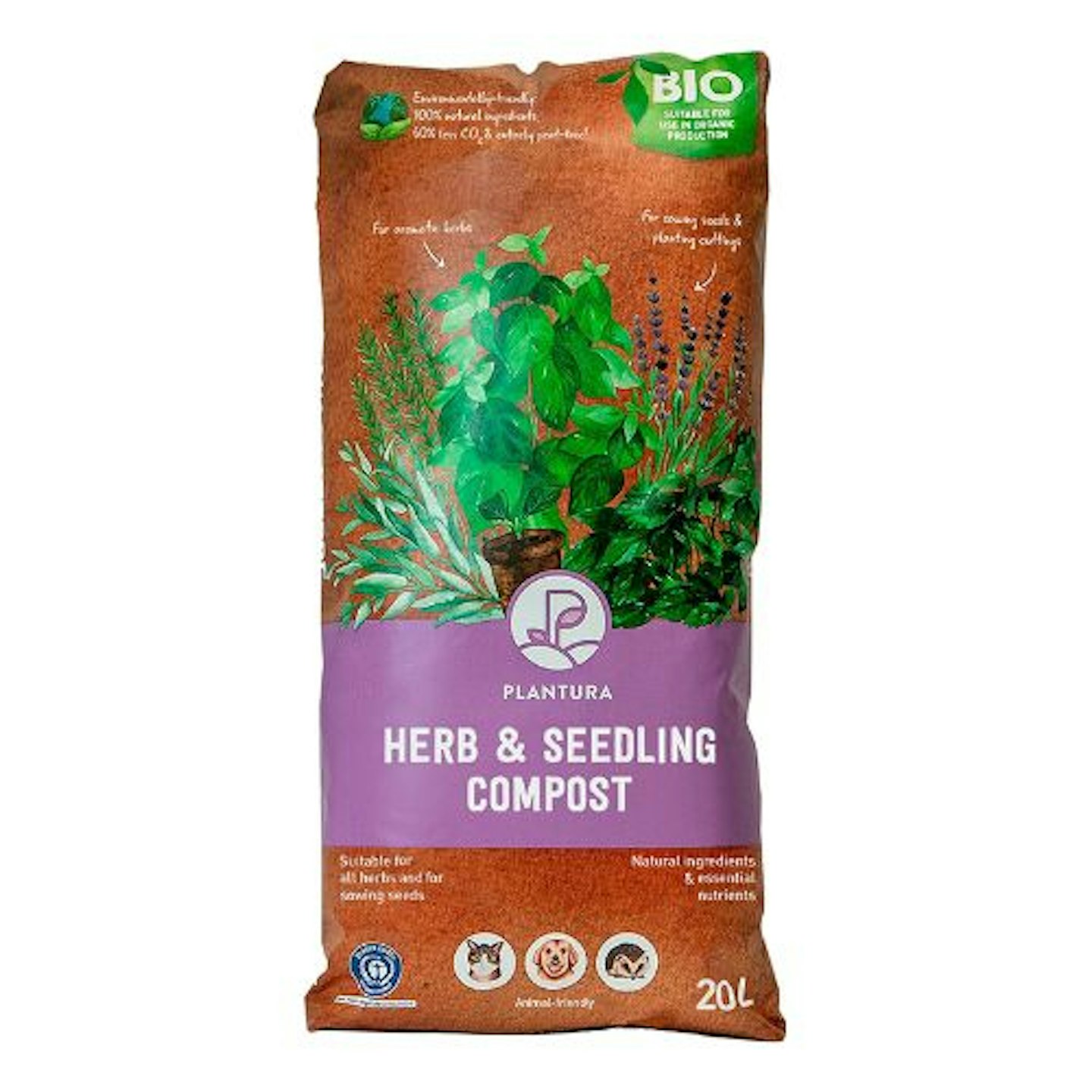 1 of 1
1 of 1Plantura Organic Herb & Seedling Compost, 20L
Step 3
Get clued up about what each herb prefers. Some of the herbs may need replanting regularly. For example, mint doesn’t like being kept in a pot. So, it’s worth repotting this one. Whenever it looks a little worse for wear, lift the roots and repot into fresh compost. We recommend this herb-growing book to keep yourself informed.
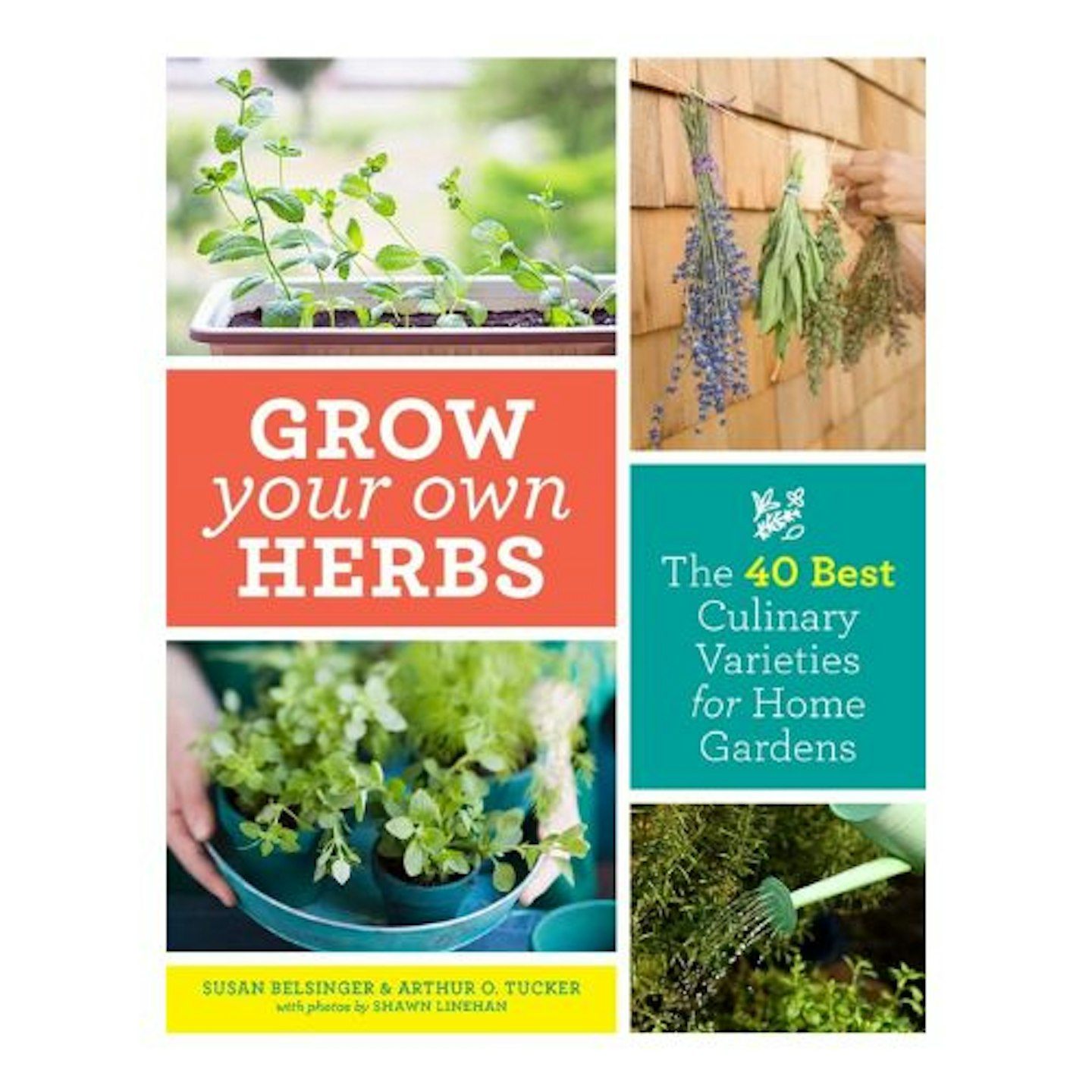 1 of 1
1 of 1Grow Your Own Herbs: The 40 Best Culinary Varieties for Home Gardens
Step 4
Long-term, larger perennials (like rosemary and sage) are happy. Wait several years before repotting. For example, bay leaves can be grown in a container pot, but use a loam-based compost. For this, choose some John Innes No. 3.
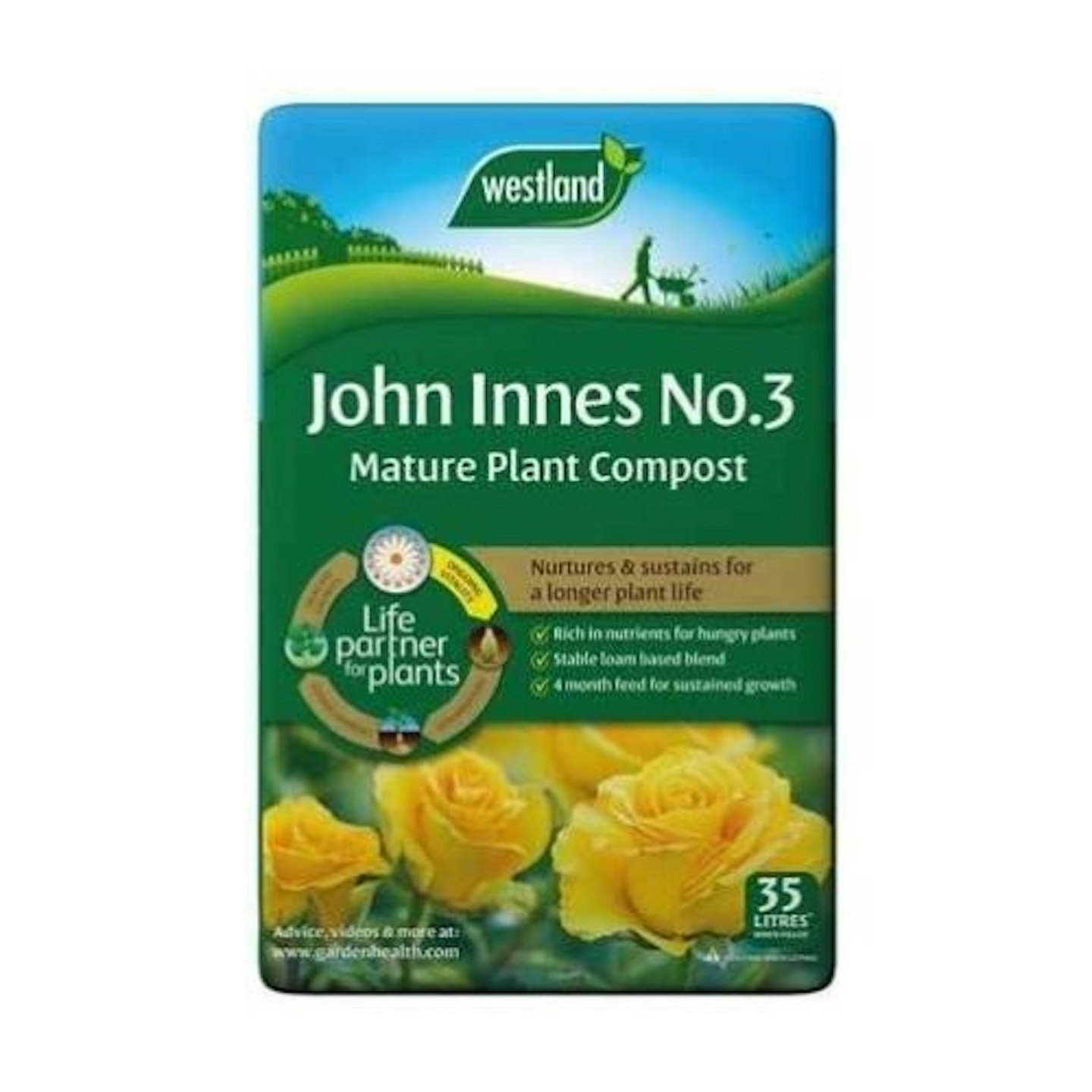 1 of 1
1 of 1Westland, John Innes No.3 - Mature Plant Compost, 35L
FAQs
When is the best time to start a herb garden?
Generally, spring is the best time to start a herb garden, indoors or outdoors. Most indoor and outdoor sowing should take place between February and June, but it does depend on the herb. Some herbs are suitable for year-round indoor planting, though. Make sure to check on the back of the seed packet if you're unsure.
If you're a little overwhelmed by all of the resources you may require to start growing herbs, don't worry.
Why not grab a herb-growing starter kit? We love this one from Etsy.
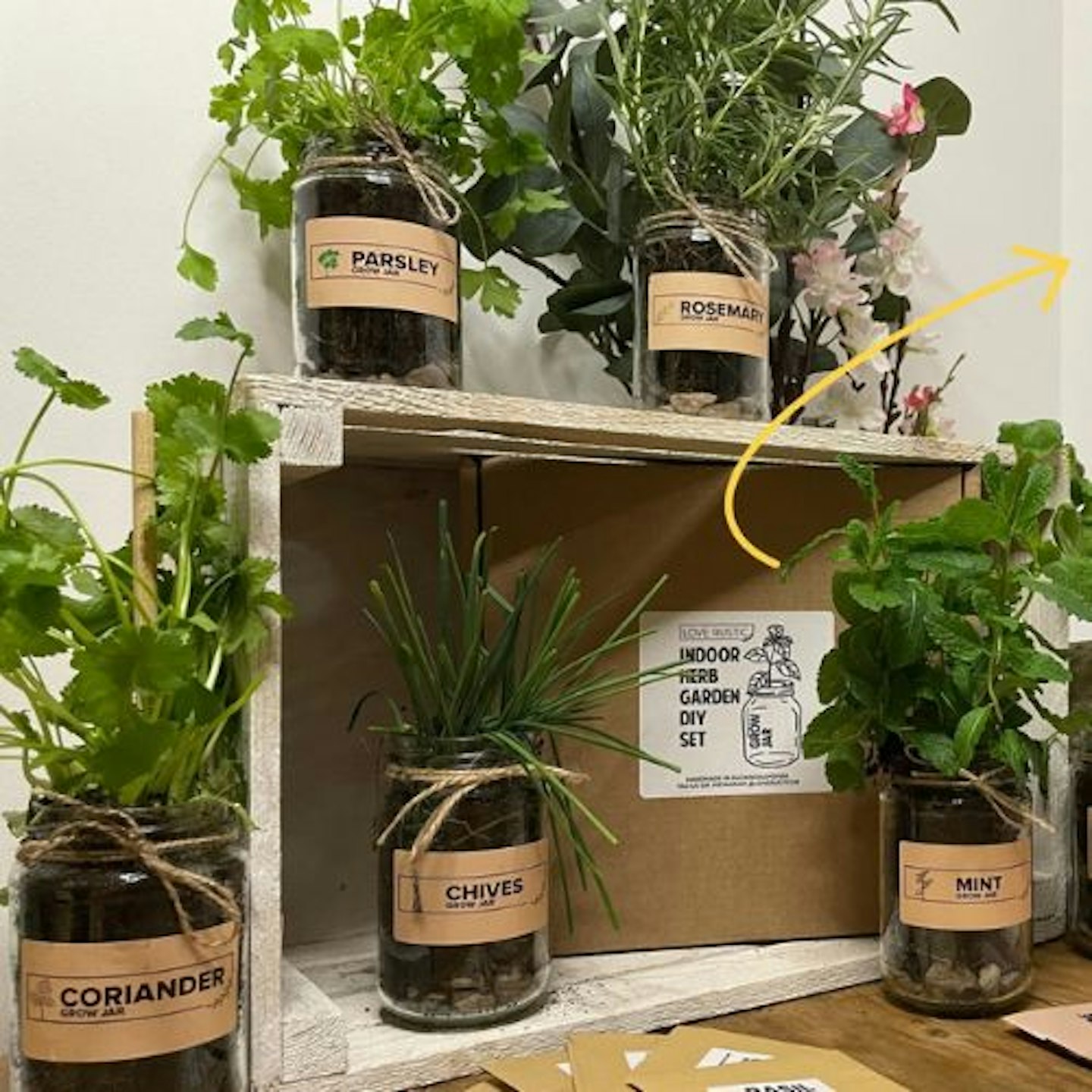 1 of 1
1 of 1Grow Your Own Herbs Kit
This eco-friendly herb-growing set contains soils and stones for gritty compost and seeds.
Are herbs hardy, can they survive winter?
As you may have gathered, herbs are unique and required different conditions. It's not a simple 'yes' or 'no'. You may need to cover some plants in the winter - or bring some indoors. It depends on how hard it is.
According to the RHS, "some herbs die in winter - for example, tarragon and mint".
Hardy, perennial herbs (such as bay, sage and thyme) can cope with cold spring nights, but will not grow. If you want your plants to grow and give you herbs through the colder months, you should place them somewhere they won't freeze, become saturated by rain or become too dry. Most herbs will be able to look after themselves, but it's up to you to help them out.
It is recommended that you should place them in "the rain shadow of walls, in a cold frame or even in an open fronted shed." Or, you could use a "sheet of glass or plywood can keep off heavy rain in wet regions," they add. If very cold weather is due your way, many gardeners suggest protecting your containers from freezing by wrapping them in bubble wrap. Fancy that!
If you're worried about your tender herbs (such as basil) making it through the winter, bring them indoors. Pop your tender herbs on a sunny windowsill, warm conservatory or in a frost-free greenhouse - if you have one.
What are the best conditions for a herb garden?
We've got some pointers on how to prime your garden or windowsill for a herb garden.
Does a herb garden need full sun?
Sunlight is essential for all plant growth. Your herb garden will likely thrive in places where it can receive six or more hours of direct sunlight. Think windowsill or a sunny spot in your back garden. Some plants thrive under artificial conditions. For example, hydroponics gardening gives you the opportunity to cultivate microgreens indoors.
However, some herbs may need a little more shade than others. Plants such as coriander, parsley, mint, dill and chives will require partial shade - so, make sure to keep those separate if you can. To provide partial to full shade, you can place these particular herbs by fencing, or hedges or even create a makeshift shelter out of burlap.
Which potting soil or compost should I use for a herb garden?
Finding the perfect soil for your herbs is also vital for their health. After all, the right soil will keep their roots anchored firmly in the ground. This is so your herbs can collect all the water and valuable nutrients that are necessary for growth. Although most herbs will grow in most soils, you need to be clued up on what works best for each.
It's worth noting that herbs will die in very wet soils. So, it needs to be gritty, well-drained and rich in organic materials. We've given our suggestion above. With this, your herbs will thrive - inside or outside.
Some gardeners make their own potting soil which you might want to try yourself:
